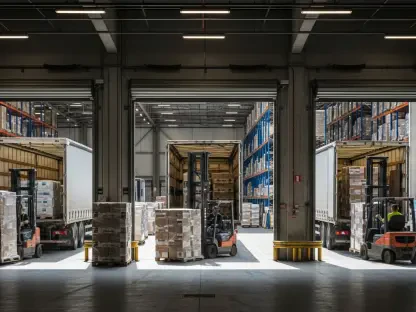In the dynamic world of international commerce, tariffs often serve as powerful tools wielded by countries to protect domestic interests. However, in 2023, a significant 17.09% tariff was imposed on imported Mexican tomatoes by the United States, sparking heated discussions. This decision has stirred questions about the impact such regulations have on fair trade practices, market stability, and the intricate balance between economic protectionism and global trade fairness.
Unraveling the Tomato Trade Nexus
The trade relationship between the U.S. and Mexico regarding tomatoes has always been robust, driven by high demand and competitive pricing. For many decades, Mexican tomatoes have dominated imports in the U.S., credited for their quality and lower costs compared to domestic products. In 2019, an agreement was struck to suspend the antidumping levy, halting a proposed duty that threatened the import flow. However, its abrupt termination in 2023 underlines broader global tensions in trade policies, raising concerns about the fluctuating nature of international agreements and economic diplomacy.
Diverging Perspectives on Tariff Implications
From the U.S. viewpoint, the tariff is framed as a necessary defense against perceived unfair pricing from Mexican suppliers. Government officials and agricultural advocates assert that such measures are vital to safeguard American farmers’ interests and ensure equitable market practices. On the other side of the border, the Mexican government counterargues, focusing on the inherent quality of their produce as the real driving factor of American market saturation. The discussions highlight disparities in the understanding of fairness within trading partnerships, showing the challenges faced in aligning national and international interests.
Real Voices on Real Impacts: The Stakeholders’ Views
Industry experts and stakeholders reflect diverse opinions on the implications of this tariff. Jaime Chamberlain, a distributor reliant on Mexican tomatoes, expresses concern over escalating costs and procurement challenges due to the tariff. These obstacles create significant financial strain, affecting operational sustainability. Lance Jungmeyer, representing the Fresh Produce Association of the Americas, warns of possible supply chain disruptions, suggesting alternative sourcing may lack the volume Mexico provides. These insights signify the complexity of trade decisions and their profound effects on businesses intertwined with international commerce.
Navigating Forward: Strategic Approaches and Resolutions
Addressing the ongoing issues resulting from the tomato tariff requires pragmatic strategies from all involved parties. Businesses must innovate to manage increased costs, perhaps by diversifying suppliers or enhancing domestic production capabilities. Policymakers could engage in robust negotiations, seeking compromises that benefit both nations while preserving integrity in trade practices. Establishing frameworks advocating fair trade can guide stakeholders in resolving similar disputes, fostering stability and mutual prosperity in international economic relations.
In past actions, industry and political voices engaged in trade warfare found resolutions that restored equilibrium and benefit, highlighting the potential for overcoming disputes with strategic foresight.









